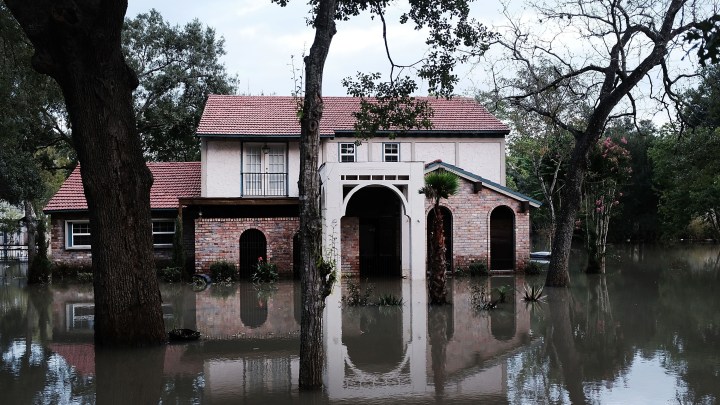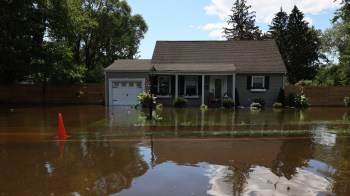
Lots of homeowners are dropping flood insurance, study shows
Lots of homeowners are dropping flood insurance, study shows

More than a quarter of the homeowners who bought policies through the National Flood Insurance Program dropped it within five years, according to a new study by the Government Accountability Office.
That gives you some sense of the problem facing the folks at the Federal Emergency Management Agency, which runs the program, as they try to get more at-risk households to sign up.
According to the report, 28% of people who had flood insurance in 2014, for whatever reason, didn’t in 2019.
“That number doesn’t even tell you how bad it is,” said former FEMA administrator Craig Fugate.
That number only applies to those people who received assistance when their houses flooded or those with federally backed mortgages who live in 100-year flood plains, he said. They have to have insurance.
“The bigger number is the people who don’t live in a special flood-risk area that don’t have flood insurance, that are at flood risk and have no coverage,” Fugate said.
That included many of the people in the Houston area during Hurricane Harvey. For a lot of those affected, flooding was caused by the intense rain; they weren’t told they had to buy flood insurance, so they didn’t.
“It’s not an unknown problem. It’s a marketing and communication problem,” Fugate said.
But it’s also a data problem, said Alicia Puente Cackley, director of financial markets and community investment with the Government Accountability Office.
“Everybody has pieces, and nobody has all of it,” she said.
For instance, bank regulators monitor the mandate flood insurance, while FEMA administers the coverage. There are holes in that data too, said Carolyn Kousky, executive director of the Wharton Risk Management and Decision Processes Center at the University of Pennsylvania.
“There’s no way to know why someone dropped their policy,” Kousky said.
Maybe they moved. Maybe they sold their house. Maybe they couldn’t afford it anymore.
“So it makes it hard to know, you know, how much is really a compliance problem and how much is not,” Kousky said.
The upshot is it’s really tough for homeowners to know if they’re at risk of flooding and should get insurance. The GAO report suggests FEMA take the lead.
There’s a lot happening in the world. Through it all, Marketplace is here for you.
You rely on Marketplace to break down the world’s events and tell you how it affects you in a fact-based, approachable way. We rely on your financial support to keep making that possible.
Your donation today powers the independent journalism that you rely on. For just $5/month, you can help sustain Marketplace so we can keep reporting on the things that matter to you.

















